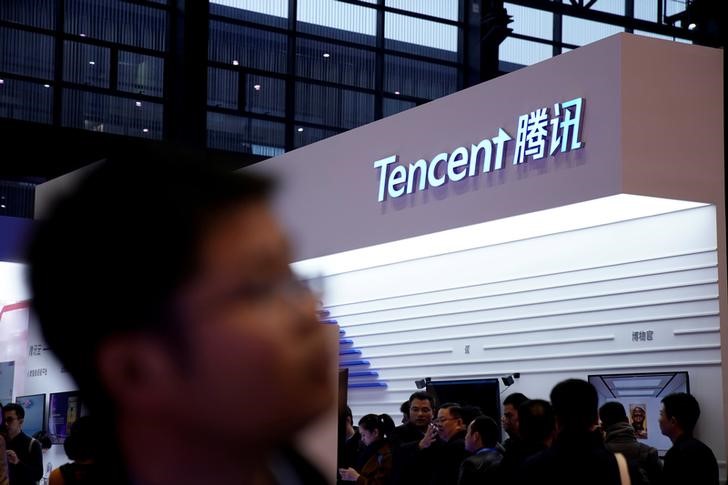
FILE PHOTO: A man looks at a mobile phone next to an electronic board showing Japan’s Nikkei average outside a brokerage in Tokyo, Japan, March 23, 2018. REUTERS/Toru Hanai
September 27, 2018
By Hideyuki Sano
TOKYO (Reuters) – Global equities ran out of steam and U.S. bond yields fell after the Federal Reserve raised interest rates as expected, sticking to its script of gradual policy tightening with forecasts of five more rate hikes by 2020.
MSCI’s broadest index of Asia-Pacific shares outside Japan dipped 0.05 percent in early trade while Japan’s Nikkei fell 0.45 percent.
On Wall Street, the Dow Jones Industrial Average fell 0.4 percent and the S&P 500 lost 0.33 percent. The Nasdaq Composite dropped 0.21 percent.
The 10-year U.S. Treasuries yield fell more than 5 basis points to 3.048 percent.
The Fed bumped up its policy target by a quarter of a percentage point to 2.00-2.25 percent and indicated that it foresees another rate rise in December, three more next year, and one in 2020.
While that was little changed from its previous projections in June, it would put the benchmark overnight lending rate at 3.4 percent, roughly half a percentage point above the Fed’s estimated “neutral” rate of interest, by 2020. [nL2N1WC1KM]
“The Fed seems to have grown more convinced of the need to keep raising rates beyond the neutral levels. I cannot see reasons to slow down raising rates as long as the jobless rate keeps falling,” said Tomoaki Shishido, fixed income strategist at Nomura Securities.
But some investors see a limited need for the Fed to keep raising rates as inflation has shown no sign of picking up so far, despite continued economic growth and a tight labor market.
The U.S. unemployment rate stood near its lowest level since 2001.
“Three hikes next year is absurd,” said Bob Baur, chief global economist at Principal Global Investors in Des Moines, Iowa. “With an additional rate hike likely in 2018 and one in March next year, we will reach what many Fed governors feel is a neutral rate level. With the low odds of a spike in inflation, it makes sense that the Fed would pause after the March rate hike and allow the markets to adjust to its new policy,” he said.
Some investors also say trade disputes between the Trump administration and several trading partners are adding more uncertainty to the economic outlook.
U.S. tariffs and retaliatory levies by others could slow the global economic growth, but broad-based tariffs could also stoke inflation by raising the prices of imported goods.
In the currency market, the dollar was mixed after the Fed’s decision.
The dollar index against a basket of six major currencies stood at 94.266, having gained 0.13 percent on Wednesday. It hovered above Friday’s 2 1/2-month low of 93.808.
The euro traded at $1.1749, off three-month high of $1.18155 touched on Monday.
The yen hit a 10-week low of 113.145 to the dollar in a choppy trade after the Fed’s policy announcement but it bounced back to 112.75.
Emerging market currencies, which had been pressured by concerns higher U.S. yields will encourage investors to move funds out of emerging markets to the United States, were firmer.
MSCI emerging market currency index rose 0.2 percent on Wednesday. The gains means its performance so far this month is up 0.25 percent, raising hopes it could post its first monthly rise in six months.
Oil prices gained on an impending fall in Iranian exports.
Global benchmark Brent rose 0.9 percent to $82.10 per barrel, near the four-year high of $82.55 set on Tuesday. West Texas Intermediate (WTI) crude futures gained 1.2 percent to $72.45 a barrel.
(Additional reporting by Tomo Uetake; Editing by Eric Meijer)

